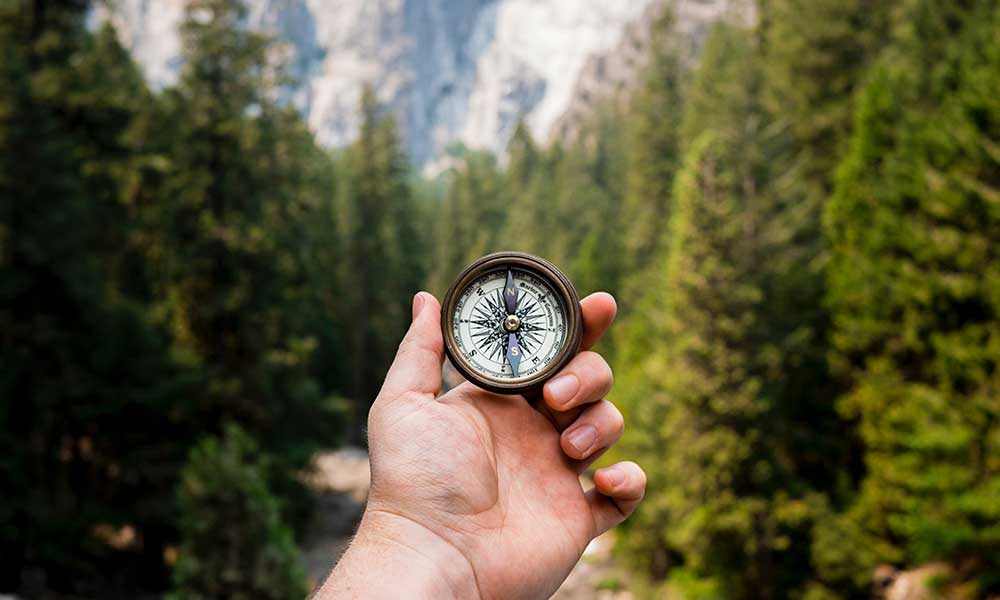Bear attacks make headlines, but they are not frequent. For example, look at Yellowstone’s stats. Since 1872, eight people have been killed in the park by a bear. In the same period at the park, 21 people have died from burns after falling into the hot springs, and an additional 121 people have drowned. Even so, hikers are warned to make noise so they won’t surprise a bear.
Noise doesn’t scare bears away, but it will let them know you are around. Bears do not like people sneaking up on them, even if it is an accident. Talking to a fellow hiker or yourself is an excellent method of letting a bear know you are nearby. But the best deterrent in an encounter is bear spray.
Bear deterrents have different purposes. For example, using bear spray on your tent and around your campfire is a bad idea. Bears are curious and will be attracted to its smell. Thus, bear spray will lure bears to you if used randomly. But bear spray is the most effective way to get rid of a bear at close range. Noise is also an excellent tool, but its purpose isn’t to scare bears.
Using Noise To Deter Bears
The best noise to use in bear country is talking to your fellow hiker or yourself in busy-restaurant conversational tones. You and your hiking companions don’t need to yell or scream at each other, but you don’t need to use your mother’s “indoor voice” either. You are outdoors; engage the diaphragm.
Bells, or having a “clanger,” are not as effective at letting a bear know a human is in the area. In fact, the more a bear encounters towns and human noises, the less it cares about sounds such as wind chimes, airhorns, vehicle horns, and music.
Colorado Parks & Wildlife has found that using a radio tuned to a talk show will deter bears from exploring a home or chicken coop. However, a radio playing music appears to be ineffective at keeping a bear away from a home or coop.
The Purpose Of Noise To Deter Bears
The purpose of noise isn’t to scare a bear but to let them know a human is around. Bears do not like it when people sneak up on them and may act aggressively as a result. But bears usually don’t want to interact with people, so they’ll move before you arrive if they know you’re coming. Thus, the best way to let a bear know a human is around is to make a human noise: talking.
Sure, bears might find your campsite interesting or even watch you from a distance. But they don’t want to meet and greet or take selfies. They’ll just explore your stuff when you go away (lock up your food in a bear bag or container first).
Also, it is doubtful any noise you make will genuinely scare a bear. They may, however, not like the noise. Noises such as an air horn may even irritate them enough to decide to move on. There is no harm in using an airhorn or even a whistle if you encounter a bear, especially if it is too far away to use bear spray. However, the bear may ignore it. Thus, Yellowstone encourages visitors to just firmly say, “Go away, bear.”
Screaming at a bear is not wise. That is the sound of fear. Then you sound like a prey animal. Just be an assertive human, raise your arms, don’t run, and firmly tell it to leave.
Why Bears Attack
Bears are not big on attacking people, but they do happen. A study that looked into bear attacks discovered the top three reasons were:
- Female with cubs
- Surprising the bear
- A dog’s presence (especially off lead)
Almost all the attacks happened to men when alone. The bear attacks were more frequent in areas where people’s presence in bear country was rare. Bears in places where people are common appeared to both be more accustomed to people and quicker to recognize the signs of a human’s presence.
It is reasonable to conclude that people hiking alone are less likely to be talking. Thus, they are more likely to accidentally get too close to a bear and potentially surprise them. A bear with cubs reacts very badly to such situations. So again, the best way to avoid a nasty encounter with a bear is to use your voice. You may feel ridiculous, but the birds won’t tell your friends.
Barking Dog Noises Do Not Always Deter Bears
A barking dog sounds like the perfect noise to deter a bear. But in North America, half of all bear attacks involve an unleashed dog. Thus, a dog can increase the likelihood of a negative bear encounter.
A barking dog might deter a bear if the dog is heard barking at a distance. In addition, some evidence suggests a property with a dog on it is less likely to be visited by a curious bear than one without a dog.
However, on the trail, a dog creates a dangerous situation if it bounds up to a bear or, worse, sees a bear then runs back to you (the bear will chase it). Therefore, when in bear country with a dog, your four-legged friend must be on a lead. Also, if you are alone with your dog on a hike, talk to your best friend. Your voice is more likely to deter the bear than any barking.
Dogs can also attract bears to your campsite. This is because a dog’s poop smells like food. Also, a dog’s food smells like food. Thus, if you don’t clean up after your best friend and move the droppings far from your campsite and tent, a bear may wander in looking for a snack. You also need to make sure the dog food is as secure as the human food.
Conclusion
Noise is unlikely to scare a bear away. However, bears generally don’t want to interact with humans, so talking lets them know you are around. Other noises, such as bells or playing music, may not be enough for the bear to take the noise seriously. But a human’s voice is a clear signal to a bear that people are around. Thus, strike up conversations on the trail, be it with the birds, squirrels, or a swaying tree.







